Moses Malone (Part 2)
Moses Malone (Part 2)
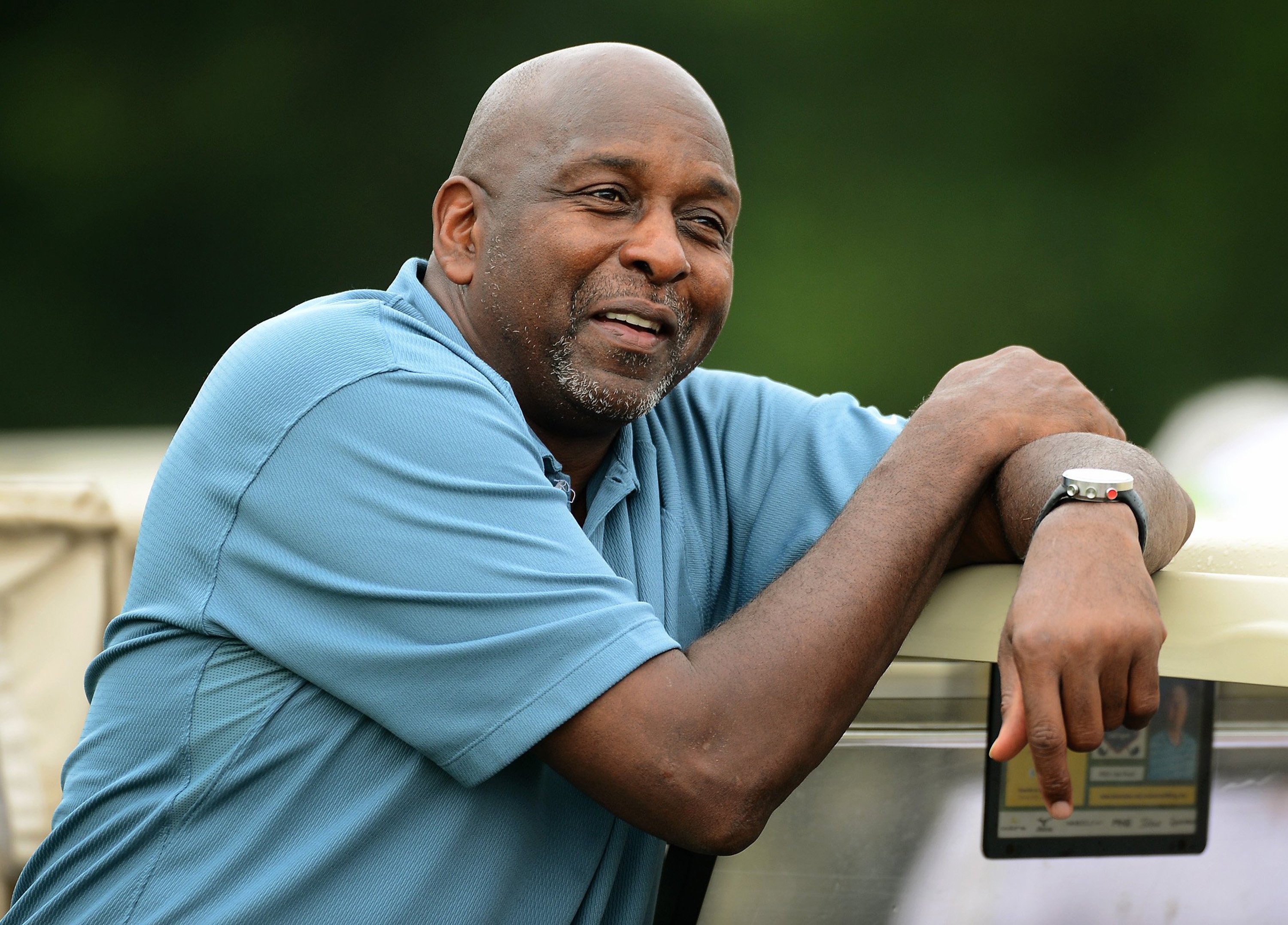
During the 1977–78 NBA season, Malone continued to excel, despite being sidelined for the final 23 games due to a stress fracture in his right foot. He led the league with 380 total offensive rebounds and finished second in rebounds per game with 15.0. His scoring improved to 19.4 points per game, earning him his first NBA All-Star Game appearance.
In the 1978–79 season, Malone further solidified his status as one of the league's top centers. He gained 15 pounds in the offseason, averaging 24.8 points and a career-high 17.6 rebounds per game. Malone's impressive performance earned him the NBA Most Valuable Player Award, making him one of the top players in the league. He led the league in offensive rebounds, setting a single-season record with 587 offensive boards. Additionally, he was named to the All-NBA First Team and the All-Defensive Second Team.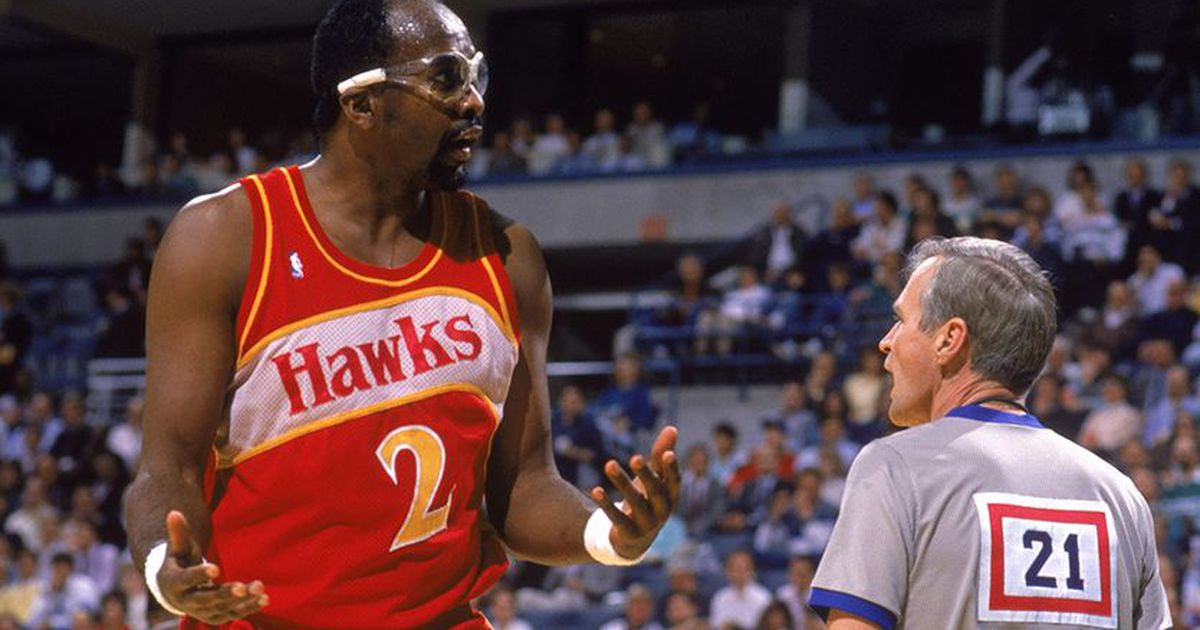
In the following season (1979–80), Malone maintained his dominance, averaging 25.8 points and 14.5 rebounds per game. He earned his third consecutive All-Star selection and was named to the All-NBA Second Team. Malone played a crucial role in leading the Houston Rockets to the playoffs, where they defeated the San Antonio Spurs in the first round but were eliminated by the Boston Celtics in the conference semifinals.
The 1980–81 season saw Malone continue to excel, leading the league in rebounds with 14.8 per game and averaging 28.8 points per game. He guided the Rockets to the NBA Finals for the first time in his career, where they faced the Boston Celtics. Despite Malone's impressive performance throughout the playoffs, the Rockets fell short, losing to the Celtics in six games.
In the 1981–82 season, Malone won his second MVP award after averaging 31.1 points and 14.7 rebounds per game. He led the league in rebounds once again and finished as the runner-up for the scoring title. Malone's outstanding play earned him a spot on the All-NBA First Team for the second time in his career. However, despite his individual success, the Rockets were eliminated in the first round of the playoffs by the Seattle SuperSonics.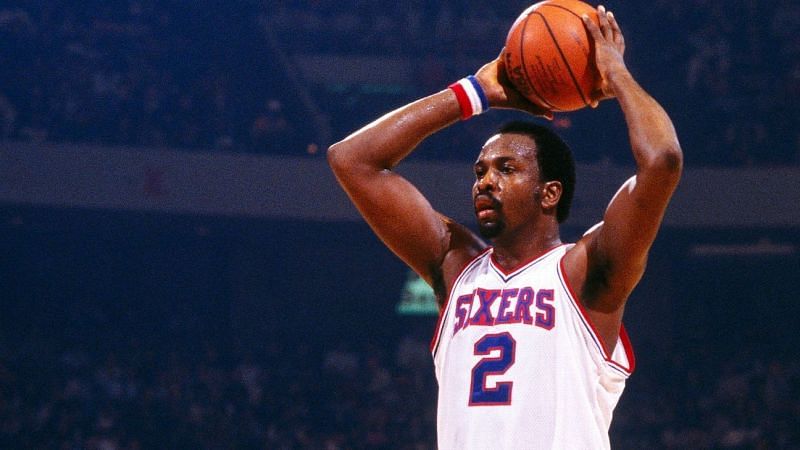
After becoming a restricted free agent following the 1981–82 season, Malone signed an offer sheet with the Philadelphia 76ers for six years and $13.2 million. The Rockets, feeling his salary did not align with their plans, matched the offer and traded Malone to the 76ers for Caldwell Jones and their first-round pick in the 1983 NBA draft. Joining a formidable lineup that included Julius Erving, Maurice Cheeks, Andrew Toney, and Bobby Jones, Malone played a pivotal role in the 76ers' dominant season.
In the 1982–83 season, Malone continued his exceptional play, averaging 15.3 rebounds per game and 24.5 points per game. He led the league in rebounds for the third consecutive year and was named an All-Star for the sixth straight season. Malone earned first-team honors on both the All-NBA and All-Defensive teams.
The 76ers, led by Malone, had a remarkable postseason run, losing just one game en route to winning the NBA championship. In the Finals against the Los Angeles Lakers, Malone's outstanding performance earned him the Finals MVP award. He outrebounded Lakers center Kareem Abdul-Jabbar 72–30 in the series. Malone's prediction before the playoffs, envisioning a "fo', fo', fo'" sweep in each round, became famous as the 76ers came close to fulfilling it, losing just one game in the Eastern Conference Finals to the Milwaukee Bucks. The 76ers' dominant playoff run cemented Malone's status as a world champion and remains one of the most memorable postseason performances in NBA history.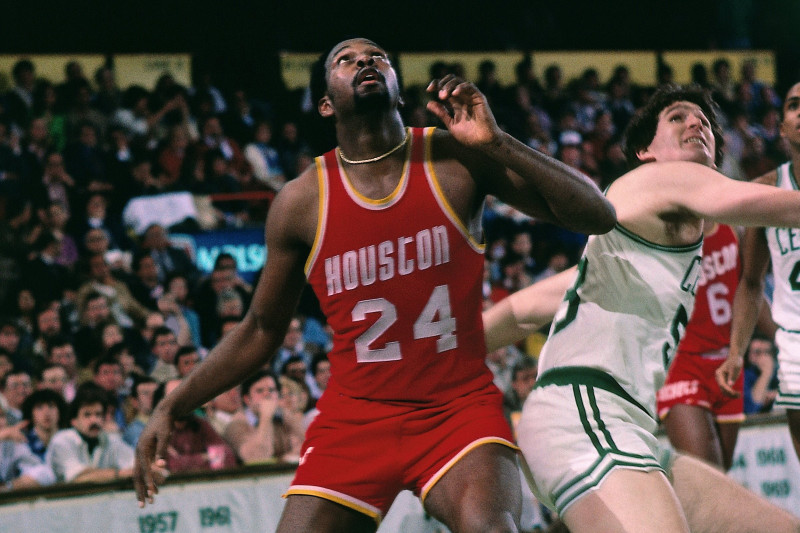
In the 1983–84 season, Malone led the league in rebounding with 13.4 rebounds per game but was limited to 71 games due to ankle injuries. Despite his injury, he still managed to score 22.7 points per game and was named to the All-NBA Second Team. Although selected for the All-Star Game, Malone was unable to play due to his ankle injury. In the playoffs, he averaged 21.4 points and 13.8 rebounds in five games, but the 76ers suffered a first-round upset against the New Jersey Nets.
In the 1984–85 season, Malone continued his dominance on the boards, averaging 13.1 rebounds per game, leading the league in rebounding for a record-setting fifth consecutive season. He also scored 24.6 points per game, earning his fourth All-NBA First Team selection. Malone finished third in the NBA Most Valuable Player Award voting, behind Larry Bird. He reached two significant milestones during the season, scoring his 15,000th NBA point on November 28 and grabbing his 10,000th NBA rebound on March 29. Despite his individual achievements, the 76ers were defeated by the Boston Celtics in the Eastern Conference Finals./cdn.vox-cdn.com/uploads/chorus_image/image/47176128/GettyImages-110215557.0.0.jpg)
The following season, 1985–86, Malone's season was cut short when he suffered an orbital fracture in his right eye during a game against the Bucks on March 28. Although there were hopes for his return during the playoffs, he was ultimately ruled out for the postseason. The 76ers lost in the Eastern Conference Semifinals to the Bucks. Malone averaged 23.8 points and 11.8 rebounds per game in 74 appearances but was not named to the All-NBA Team for the first time since 1978.
References
- Pattison, Dan (December 3, 1975). "Stars perish in sea of red ink". Deseret News. (Salt Lake City, Utah). p. D1.
- ^ Montgomery, Paul L. (December 3, 1975). "Spirits Get Stars Of Stars". The New York Times.
- ^ "1975-76 Spirits of St. Louis Roster and Stats". Basketball Reference.
- ^ "ABA folds Utah Stars; Spirits buy four stars". Bangor Daily News. December 3, 1975. Retrieved September 13, 2015 – via Google News archive.
- a b Turner, Broderick (September 13, 2015). "NBA Hall of Famer Moses Malone dies". Los Angeles Times. Retrieved September 13, 2015.
- ^ Jonathan Abrams (July 31, 2006). "The TV Deal the NBA Wishes It Had Not Made". Los Angeles Times. Retrieved September 13, 2015.
- ^ Bill Simmons (2009). The Book of Basketball. ESPN Books. pp. 196–197. ISBN 9780345511768. Retrieved May 22, 2022 – via Internet Archive.
- ^ Doney, Ken (August 6, 1976). "Tral Blazers deal Petrie, Hawes to Atlanta five". The Oregon Statesman. Associated Press. p. 1D. Retrieved April 9, 2022 – via Newspapers.com.
- ^ Greenburg, Alan (March 28, 1982). "In Moses Malone, the NBA Has Met The Irresistable Force". Los Angeles Times. Part III, p. 3. Retrieved April 9, 2022 – via Newspapers.com.
- ^ "Malone off to Braves for cash, draft pick". The Oregon Statesman. October 20, 1976. p. D1. Retrieved April 9, 2022 – via Newspapers.com.
- ^ (via Google News archive):"Moses Malone Traded to Buffalo". Daytona Beach Morning Journal. October 20, 1976. Retrieved September 13, 2015.
- ^ (via Google News archive):"His 5th trade Malone travels". The Morning Record. October 26, 1976. Retrieved September 13, 2015.
- ^ "NBA & ABA Single Season Leaders and Records for Offensive Rebounds". Basketball-Reference.com. Retrieved September 14, 2015.
- ^ "1976–77 NBA Leaders". Basketball-Reference.com. Retrieved September 13, 2015.
- a b c Morales, Valerie (September 13, 2015). "Moses Malone, the Best Offensive Rebounder in NBA History". the Committed Generation. Retrieved September 14, 2015.



















































